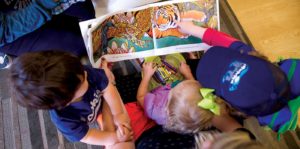
Alphabet knowledge is a basic building block for early reading and writing. Children who learn the forms, names and sounds of letters during early childhood are less likely to experience reading difficulties later in school. See highlights of Crane Center research and find resources for assessing and teaching the alphabet.




